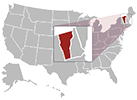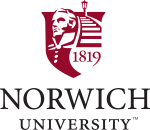
Registered nurses are essentially what makes the medical world go round.
A doctor relies so heavily on RNs that there is always a high demand for them.
Having job security is always nice, but when it’s coupled with a rewarding career, it doesn’t get much better.
If you’re a compassionate person who is looking for a way to make a difference to those in need, working as a nurse might be the perfect fit.
So, read on to find out everything you need to know about being a registered nurse in Vermont.
5 Registered Nurse Schools in Vermont
University of Vermont
![]()
Graduating from UVM with a Bachelor of Science in Nursing degree means you’re getting a well-rounded, four-year education.
By the start of the second year, the clinical experience begins.
The professors here want you to have as much practical knowledge as possible.
Their methods seem to work.
On average, 90% of their students pass the licensing exam.
You can expect to pay $80,000 for the four-year program.
Castleton University

In an effort to offer flexibility to students, Castleton offers three different programs.
The first is the Bachelor of Science in Nursing.
It’s a four-year program at a normal pace.
The second is a three-year program with the same degree but at an accelerated rate.
Third, there is a two-year option that is done mostly online.
Depending on which of the three options students choose, expect to pay between $22,000 and $44,000.
Norwich University

This is the oldest military college in the US.
Students in the nursing program at Norwich University get to go outside the classroom for hands-on learning.
Working in the field at military hospitals gains a unique range of experiences to use post-graduation.
This private school will cost about $172,000 to complete.
It is a military school, though, so that might mean there are more ways to pay for it.
Vermont Technical College
![]()
At Vermont Technical College, the nursing program is quite different.
The goal is to set a student up so that they can get an Associate of Science in Nursing and eventually a Bachelor of Science in Nursing.
While working on the degree, students will be able to get employment as a nurse with a practical nursing certificate.
The multi-tiered program will set a student back about $35,000.
Champlain University
![]()
For students wanting to become registered nurses but aren’t close enough to a school to go in person, Champlain University is a good option.
They offer online courses with dedicated instructors that lead you towards a Bachelor of Science in Nursing degree.
These smaller classrooms enable students to get more time digitally with a professor than perhaps in a traditional setting.
If you have any credits, it’s likely you can transfer them here and end up paying less than a student who goes to CU for all four years.
Otherwise, you’ll end up paying around $20,000 for the program.
Registered Nurse Schools in Vermont – Summary Table
Top 5 Schools in Vermont
| School Name | Address |
|---|---|
| University of Vermont | Burlington, VT 05405 |
| Castleton University | 62 Alumni Dr, Castleton, VT 05735 |
| Norwich University | 158 Harmon Dr, Northfield, VT 05663 |
| Vermont Technical College | 124 Admin Dr, Randolph Center, VT 05061 |
| Champlain University | 163 S Willard St, Burlington, VT 05401, |
Salary
If you’re looking to start a career as a registered nurse in Vermont, you can expect to make an average of $81,000 a year.
Depending on where in the state you live, the realistic range could be from $59,000 up to $104,000.
Annual Salary Range:Average Salary of Registered Nurse (RN)s in Vermont
| City Name | Salary |
|---|---|
| Burlington | $65,390 |
| Essex | $65,390 |
| Rutland | $65,980 |
| Colchester | $65,390 |
| South Burlington | $65,390 |
| Bennington | $67,120 |
| Brattleboro | $67,320 |
| Hartford | $68,070 |
| Milton | $65,350 |
| Barre | $64,790 |
Regional Salary in Vermont
| Region | Employed | Avg. Annual Salary | Avg. Hourly Pay | Top 10% Annual Salary | Bottom 10% Annual Salary |
|---|---|---|---|---|---|
| Burlington-South Burlington, VT | 3,060 | $95,450 | $45.89 | $120,280 | $77,150 |
* Employment conditions in your area may vary.
Frequently Asked Questions
How do you register as a nurse in Vermont?
Once you’ve finished your education, it’s time to take the licensing exam called NCLEX-RN.
Assuming that you pass, you will become a registered nurse in the state of Vermont.
To get started, you have to set up an account on the state’s website.
Fill out the online application and pay the $150 fee.
Part of the application process will require you to submit documents, such as college transcripts, and submit to a background check.
Is it hard to become an RN?
Yes, as it should be.
When you’re working as a nurse, you’re not just going to a job.
Nurses can hold the life of a patient in their hands as often as doctors do.
It’s very important to take being an RN very seriously.
That’s why it’s something worth spending time considering before applying to schools.
In fact, if your GPA falls below 3.0 or 2.8, you might be ejected from the program.
What's a typical workday as a registered nurse in Vermont?
Most nurses work 12-hour shifts.
These are often from 7:00 am until 7:00 pm or vice versa.
This also means working three days as opposed to five.
What's the difference between getting an ASN or BSN?
The immediate differences are the obvious ones; ASN takes two years and BSN takes four.
That means it’s quicker and cheaper to become a registered nurse in Vermont when graduating with an ASN vs a BSN.
Either way, as long as you pass the test, you can be an RN.
However, it really depends on career goals.
There are some nursing jobs that require a BSN to qualify.
Is 50 too old to become a nurse?
No!
There are many reasons people choose to be an RN.
Some children grow up knowing that’s what they want to do and some middle-aged adults change their minds.
College students are often portrayed in the media as young people in their early 20s.
The reality is, people of all ages attend school.
When you get a degree at 22, you don’t really know what that profession is like.
Going back later means you’re even more informed.




